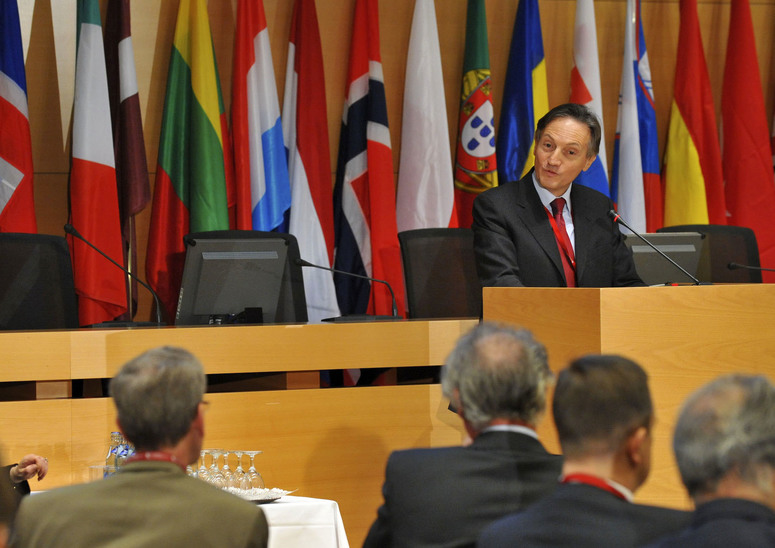Remarks
by NATO Deputy Secretary General Claudio Bisogniero at the First Strategic Concept Seminar (Luxembourg)

Minister Asselborn,
Secretary Albright,
Excellencies,
Ladies and Gentlemen
Nous avons devant nous une longue journée de discussions, au cours de laquelle nous aurons à traiter de nombreuses questions de fond. Aussi, je vais être très bref. Je tiens avant tout à remercier les autorités luxembourgeoises, qui accueillent aujourd’hui le premier séminaire sur le concept stratégique. Je sais que je traduis la pensée du Secrétaire général et des représentants permanents de l’OTAN, en vous disant combien, Monsieur le ministre, nous vous sommes reconnaissants de tous les efforts que le Luxembourg a consacrés à l’organisation de ce séminaire. La barre est d’ores et déjà placée très haut pour les trois autres séminaires qui seront organisés sur le même thème dans les mois à venir.
As all of you know, the Secretary General wishes the process leading to the Strategic Concept to be open and transparent. The presence here today of parliamentarians from the NATO Parliamentary Assembly, of prominent strategic thinkers, of representatives from the media and of senior officials from capitals, is proof of the seriousness of our outreach. On behalf of NATO I would like to thank all of you for contributing your time and expertise to help the Group of Experts, as they begin their work to identify the elements to be included in a NATO Strategic Concept fully fit for the 21st century.
But this first seminar is not only a valuable public outreach activity. It is the opportunity for us to have a frank and open discussion, under the Chatham House Rule, on the key issues facing NATO today. Looking at today’s agenda I can see that we are going to plunge straight into the fundamental questions that will determine NATO’s future. Let me mention them briefly:
- the core tasks of NATO and how collective defence can be upheld in dealing with the more complex and diverse challenges that we face today.
- the meaning of deterrence is in the 21st century, particularly when it no longer applies to a single, overwhelming threat, but to a range of risks and instabilities that we can often not foresee in advance. And, how to use a more sophisticated mix of civilian and military capabilities, to be able to respond to security threats effectively. Our operations in the Balkans and Afghanistan show that hard power is of little use, if it cannot work effectively with soft power instruments.
- the balance between our traditional mission of collective defence, on our own territory, and our new missions, tackling threats and enhancing stability well beyond our borders. It is not an either/or choice. We need to be able to do both.
- a definition of the level of ambition of the 21st century NATO. We need to be bold enough, to tackle the challenges convincingly. But also realistic enough, to remain credible, especially in times of deep economic and budgetary crisis. This entails a clear need to prioritize our efforts and to assess which tasks NATO should take on as a lead organisation, and which tasks are best left to others.
- finally, NATO’s political role. The Alliance is not simply a provider of troops or an instrument of last resort, after crisis management has failed. NATO has to play an active political role in trying to prevent threats from arising and in shaping the political environment in which we can operate successfully. In light of criticism that, in recent years, NATO’s political role, has narrowed to our ongoing operations, do we not need a broader, more intensive transatlantic consultation on our common security interests and our common responses?
These are all complex questions and finding the answers will not be easy. Our Heads of State and Government have launched this exercise precisely because they feel that NATO needs to face up to these questions and find good answers to operate effectively in the 21st century security environment. So, the Group of Experts has a major responsibility. But so, do all of us here today. We must help Secretary Albright and her colleagues in their endeavours to make the right analysis and reach the right conclusions. I am greatly looking forward to what I am sure will be a fascinating seminar. So let me step back and leave to the Chair of today’s proceedings, Secretary Albright, to lead us through our debates.
